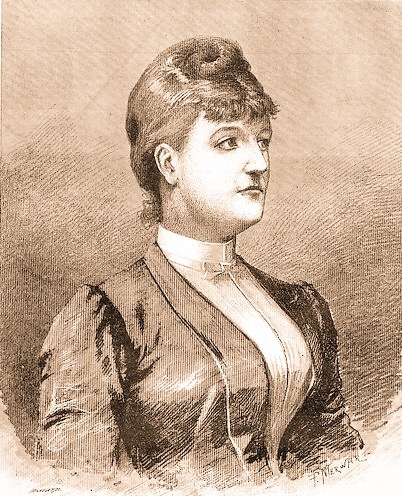I heard three joyful classical concerts a month ago, on three successive nights. Such happiness in a single week!
I’ll talk now about one of these evenings, Steven Isserlis playing music by men and women, with pianist Connie Shih, at the Kennedy Center on March 6, presented by Washington Performing Arts. So I don’t make this post too long) I’ll momentarily hold two joyful evenings at the WoCo Launch Festival, an explosion of women’s music, presented in DC by a new group, the Boulanger Initiative. Which filled me with so much joy that I came for two nights, when I’d planned at first to only come to one.
Isserlis had a great idea for a program.

Augusta Holmès
Music by bigtime male composers, and by women they loved. Robert Schumann and Clara Schumann. Martinu and Vitezslava Kapralova, whom he was crazy about and who died when she was only 25. César Franck and Augusta Holmès, Irish/French, who (said Isserlis‘s vivid program notes) captivated all the male composers in Paris. So much so that Franck, devoted Catholic as he was, started writing music that was sensual.
A quick takeaway: Clara Schumann sat easily as Robert’s equal, with fine expression and (which I particular loved) quietly striking details in her Three Romances for Violin and Piano, played an octave lower on the cello.
Kapralova (to judge from her Ritornelle, which was full of vivid jumps and twists) might, if she’d lived, been a more powerful composer than Martinu.
And Holmès…wow. In Isserlis’s own arrangement of an excerpt from a choral work, she did nothing I could point to as unusual in any objective way. Except that her melodies were ravishing, just taking over the Terrace Theater, filling all the space. I could just imagine Holmès doing that herself in a Paris salon. Just taking over the room, simply by being there.
After her piece…
…the start of the familiar Franck sonata (which ended the program) sounded like the start of a timid courtship. To which Holmès (as, hearing the music, I imagined this scenario) responded.
In the second movement, the two were in love. So crazily so in the third movement that you’d wonder if the romance could last. But yes! The full-tilt finale sounded like a partnership, a marriage. Which never happened in reality, between these two (Franck was already married), but with the music I could dream about it.
Two little things
Isserlis plays with such abandon that sometimes, to my ear, he forgets to be mindful of technique. But which matters more, joy or technical perfection?
When Isserlis came out with Shih for their encore, he cried out, “What a piece!” About the Franck. Which didn’t seem at all excessive. He’d just played in just that spirit.
And kudos to him for having Shih as his partner, a rock-solid powerhouse who’s every bit his equal, and without the tiny lapses. Shows, to me, how secure he is.
Also I don’t think it fully worked to play the Clara Schumann piece with the violin part dropped down an octave. The cello, to my ear, kept playing in a register in which it obscured the piano part, where the most absorbing details were. The violin doesn’t do that.
Which highlighted Franck’s achievement, since he meant the sonata to be played on either cello or violin. And heard the music in his mind’s ear so clearly that the change in register — the cello just plays the violin part down an octave — doesn’t make the sound even slightly less transparent. A great achievement, which, I’m going to guess, came easily to him.
Such a joyful evening!

Such a positive, joy-filled account of a wonderful program. My favorite column of yours so far, Greg.
Thanks, Larry. You and I might disagree about some things, but so good to see us joined in what’s most important, the joy of music.
Awesome post!